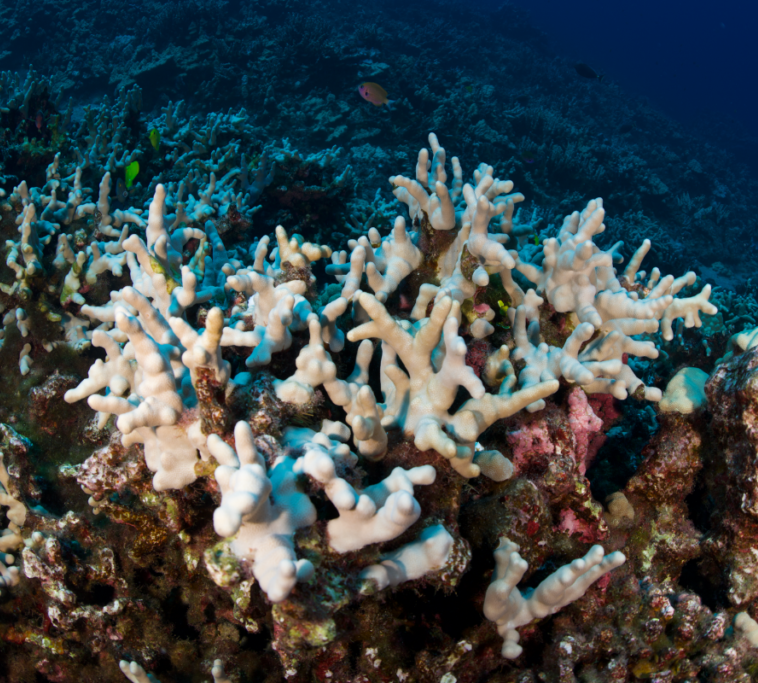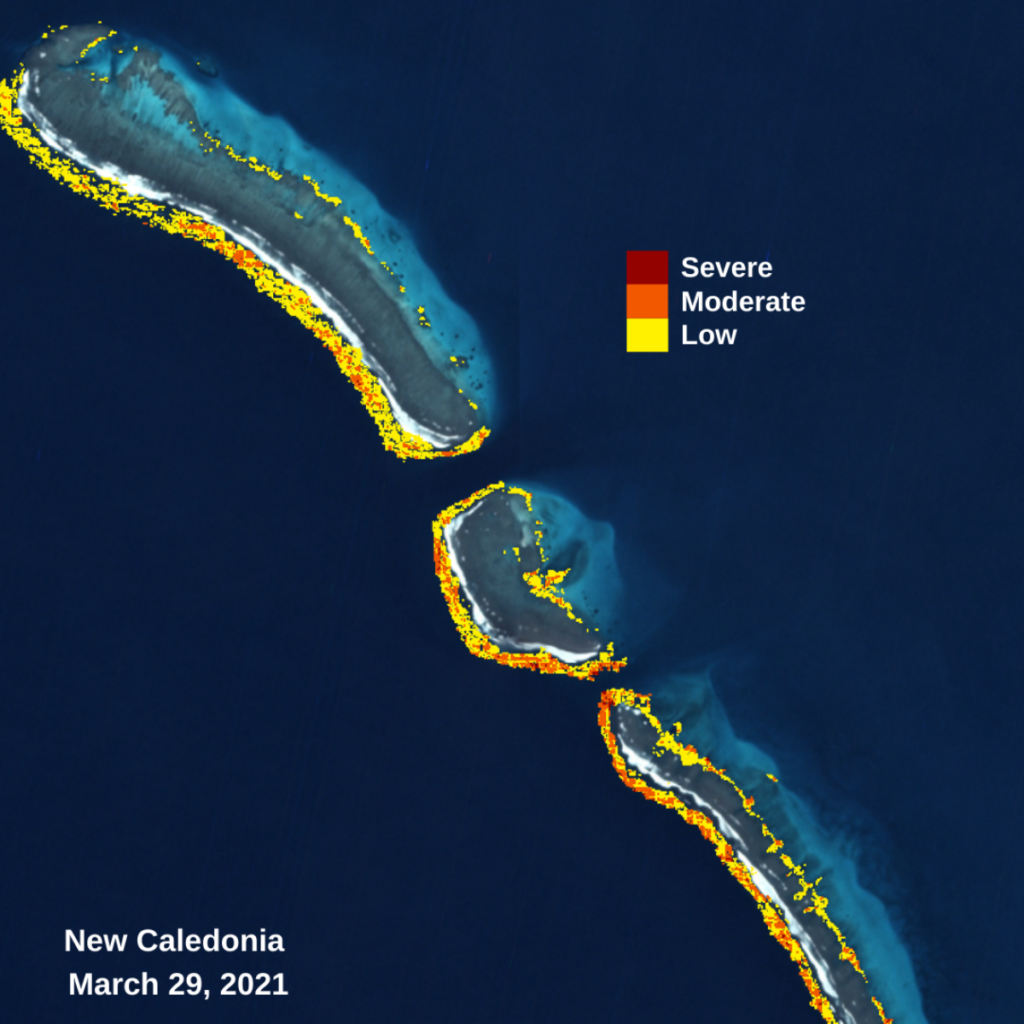Bleaching impacts coral reefs around the world.
The Challenge

By 2050, 90% of global coral reefs are projected to experience coral bleaching annually.
Our planet’s rising temperature, combined with direct threats such as water pollution and overfishing, put stress on coral reefs. When stressed, hard corals expel their symbiotic zooxanthellae—tiny algae that live in the coral’s tissues, photosynthesize, and thus provide food for corals. Without these colored zooxanthellae, the coral colony’s white skeleton is visible through the transparent coral animals. If left in a “bleached state” for too long, the corals will die.
Over time, bleaching events are becoming more frequent and severe—impacting the health of reefs across the globe. Many local governments are not able to detect bleaching events quickly enough and are not prepared to respond.
Our Solution
We are developing a global coral bleaching response network to ground-truth bleaching events that are detected from space.
The Allen Coral Atlas (Atlas) uses advanced algorithms and high-resolution satellite images to capture valuable information about coral reefs and bleaching events in real time. By working with teams of scientists and EcoDivers from around the world, we not only help the Atlas verify this information and improve the data collection process, but we also help strengthen early bleaching detection programs around the globe.
Having this valuable information as part of the larger Atlas dataset will help us better understand why some coral reefs are more susceptible to warming temperatures, in addition to informing governments, decision-makers, and other entities on the best ways to protect them. The tool may also be used as a precedent for future datasets, potentially helping scientists detect and monitor other marine threats.
Coral bleaching is a global problem and tackling it requires a collaborative approach. Together with the Atlas, we empower governments and conservationists with the tools and resources they need to respond to bleaching events, reduce local stressors, demonstrate the impact of climate change, and ultimately push for better policies to save coral reefs.

Support CORAL
Our work addressing coral bleaching wouldn’t be possible without your support. Give today to help coral reefs survive.